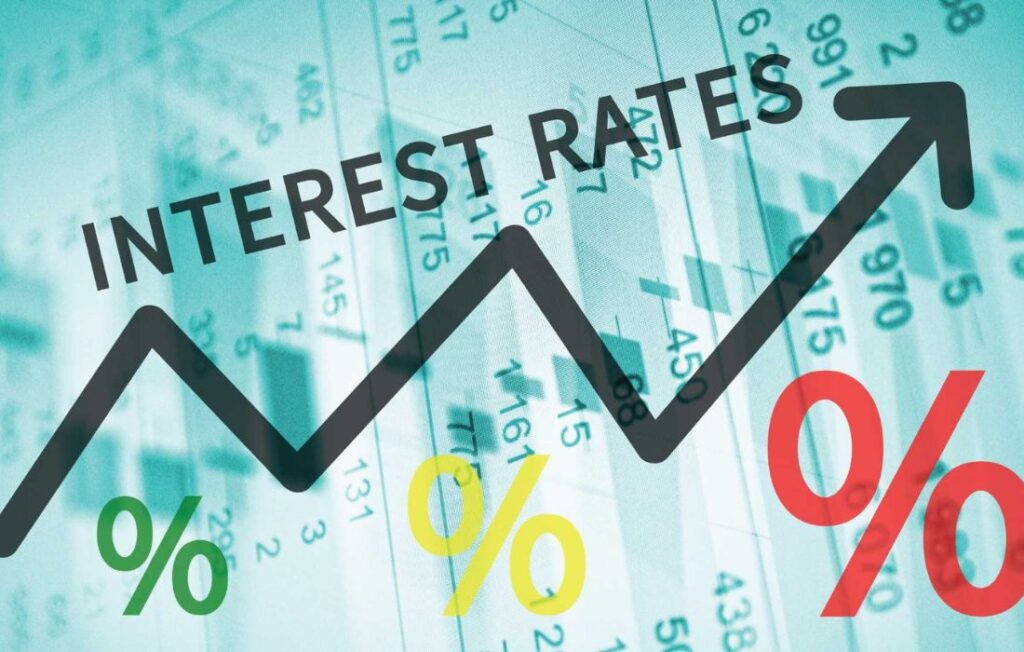In this article rajkotupdates.news :the government has made a big announcement regarding the interest rate, we will focus on the recent announcement made by the government regarding the interest rate, as well as explore tax-saving options such as Public Provident Fund (PPF), LIC premiums, Employees’ Provident Fund (EPF), Equity Linked Savings Schemes (ELSS), Tax-Saving Fixed Deposits (FDs), and the National Pension Scheme (NPS).
Navigating the complexities of tax-saving options and managing tax liabilities can be challenging. That is why seeking expert advice and utilizing efficient tax management tools is crucial. Platforms like Tax Guru and Tax India Online offer valuable resources and insights into tax planning, tax slabs, and the latest tax-related updates. By staying informed and employing effective tax management practices, individuals can optimize their tax savings, ensure compliance with tax regulations, and achieve their financial objectives.
rajkotupdates.news :the government has made a big announcement regarding the interest rate – Interest Rate Updates and Tax Exemptions on PPF, LIC Premium, EPF, and ELSS
1.Tax Exemption on PPF and LIC Premium:
The Public Provident Fund (PPF) is a highly tax-efficient investment option, providing tax exemption on both the maturity amount and the interest earned. It presents a secure way to invest and grow a substantial corpus over time. Moreover, investments made in PPF accounts are eligible for tax deductions under Section 80C. By availing this tax relief, individuals can save a maximum of Rs. 1.50 lakh.
Similarly, if you hold a LIC policy, you can claim a tax deduction on the premium paid. Section 80C provides tax relief on LIC premiums, allowing individuals to reduce their taxable income. Leveraging this benefit empowers taxpayers to optimize their tax liability efficiently.
2. Tax Exemption on EPF:
The Employees’ Provident Fund (EPF) is a straightforward tax-saving option specifically designed for salaried individuals. Contributions to EPF accounts also qualify for tax exemption under Section 80C. Administered by the Central Board of Trustees, the EPF scheme facilitates the building of a robust retirement fund. It’s worth noting that interest earned on the PF account, up to Rs. 2.5 lakh annually, is tax-free. By utilizing EPF, individuals can effectively plan for their future financial security.
3. Tax Exemption on ELSS:
Investing in Equity Linked Savings Schemes (ELSS) offered by mutual funds allows taxpayers to enjoy tax deductions under section 80C. ELSS not only provides attractive returns on investments but also reduces the overall tax burden. By taking advantage of the dual benefits of ELSS, salaried individuals can optimize their tax savings while ensuring potential wealth growth.
4.Tax Exemption on Tax-Saving FDs:
For salaried individuals seeking tax-saving opportunities, Tax-Saving Fixed Deposits offer a viable option. By investing in these FDs, taxpayers can save up to Rs. 1.5 lakh in taxes, subject to applicable tax slabs. It is important to note that these FDs come with a five-year lock-in period. As a reliable tax-saving choice, Tax-Saving FDs play a significant role in effective tax management. However, it is crucial to be aware that tax is applicable on the returns of these FDs upon maturity. Partnering with a trusted tax advisor or utilizing tax management tools like Tax Guru and Tax India Online can provide valuable guidance in optimizing tax-saving strategies.
5.Tax Exemption on NPS:
Under section 80CCE, the National Pension Scheme (NPS) offers tax exemption of up to Rs. 1.5 lakhs, providing individuals with an effective long-term tax-saving option. Additionally, section 80CCD(1B) of the NPS allows for an additional exemption of Rs. 50,000. NPS not only serves as a tax-saving avenue but also serves as a prudent retirement strategy. By leveraging NPS, individuals can secure their financial future while enjoying tax benefits.
Effective Tax Management and Expert Guidance
What are Tax-Saving FDs?
Tax-saving FDs refer to a type of savings scheme that offers potential tax benefits. Depending on the investment structure and applicable regulations, the interest earned on these FDs may be partially or fully tax-free. It is important to note that other investments such as pension schemes or gold bullion may be subject to taxable income unless proper tax management strategies are employed to control their growth.
It emphasizes the potential tax benefits associated with purchasing insurance policies through SIP plans, allowing taxpayers to exempt a portion of the annual premium from taxation. By leveraging these insights, individuals can effectively manage their tax liabilities while safeguarding their financial future.
Tax Management and Retirement Planning:
Retirement funds are primarily funded through taxes and annual contributions made by employees and self-employed individuals. These contributions, reported through additional Form W2, can be tax-deductible, allowing individuals to save for their retirement without incurring extra taxes until the appropriate age. Tax-saving FDs can be selected as tax-paying entities to accumulate funds for retirement needs while minimizing tax obligations.
Conclusion
Tax-saving FDs offer individuals an avenue to accumulate funds while potentially enjoying tax benefits on the interest earned. By adopting effective tax management strategies and leveraging expert guidance from resources like Tax Guru and Tax India Online, individuals can optimize their tax savings, ensure compliance with tax regulations, and secure their financial well-being. Embrace these insights and employ robust tax management practices to achieve your financial goals and mitigate tax liabilities effectively.
FAQs
The current interest rates are as follows:
20-Year Fixed Rate: 7.08% – 7.11%
For an investment amount of ₹1 lakh:
For 3 years with 7% interest: ₹1,23,293
For 5 years with 7% interest: ₹1,41,763
SBI offers FD interest rates that are subject to change and vary based on the duration and customer category. Currently, the rates range from 3.00% to 7.10% p.a. for the general public and from 3.50% to 7.60% p.a.
DCB Bank provides FD rates ranging from 3.75% to 8.00% p.a. for the general public and from 4.25% to 8.50% p.a. for senior citizens.
DCB bank
